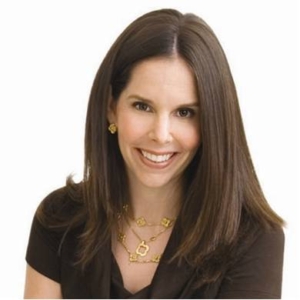 Nobody likes to work for somebody who doesn’t respect their employees, make fair decisions, or is more concerned with their own professional advancement than the good the whole team. It’s easy to spot a bad boss, but what does a good boss look like? You might picture her being open to your ideas, easy to talk to, supportive of your professional development and excited about your work. These are nice ideas, but sometimes what seems like a good boss at first can quickly sour when you find out that great performance review was rooted in their own desire to be liked. And sometimes, that tough to please boss who never lets you get a word in has the potential to teach you lesson that will grow your career by leaps and bounds.
Nobody likes to work for somebody who doesn’t respect their employees, make fair decisions, or is more concerned with their own professional advancement than the good the whole team. It’s easy to spot a bad boss, but what does a good boss look like? You might picture her being open to your ideas, easy to talk to, supportive of your professional development and excited about your work. These are nice ideas, but sometimes what seems like a good boss at first can quickly sour when you find out that great performance review was rooted in their own desire to be liked. And sometimes, that tough to please boss who never lets you get a word in has the potential to teach you lesson that will grow your career by leaps and bounds.
How can you learn to manage a relationship with your boss, whether they are good or bad? And, when things do go bad, how can you steer the relationship back to healthy?
When Love Hurts
Annie McKee is a senior fellow at the University of Pennsylvania, director of the PennCLO Executive Doctoral Program and the author of Resonant Leadership. In her work with leaders, she often sees the downside of having a boss who grows their leadership style from the root of having a congenial relationship with their employees. Mckee lists three primary issues that can arise from idolizing or loving your boss.
First, strong emotions tend to cloud our judgment, making it more likely that we will be passive when we should be assertive. Probably, having good judgment is one of the reasons you were hired in the first place—you don’t want to leave it at the door when you go into work each day.
Second, a relationship that is based in ‘liking’ one another can often lead to favoritism. This is never a good scenario; as soon as there is a problem, your boss is likely to distance themselves from you, as their likeability is their top concern. You will soon be replaced by the next easy target.
Finally, blind dedication to a leader can actually be truly dangerous as it leaves you vulnerable to making decisions which can compromise your values.
The bright side of a bad boss
While recent research shows that a boss who is truly abusive—somebody who uses public humiliation and personal attacks to impose fear and blind cooperation—is absolutely bad for your health and will most likely have a negative impact on your family life, it is possible to manage the relationship in a way that will benefit you, your team and the your company.
There is a lot of research supporting the negative impacts—on every aspect of business from the employee’s personal health to the company’s bottom line—of bad bosses, but there is not so much research on the positive impacts. Even so, there are many people whom have found that they have learned as much from challenging bosses as they have from those whom were easier to work with. If you are able to take a step back, you will learn what not to do, become more resilient, and self-reliant. These are stellar qualities that can help you become ready for your next leadership position.
A difficult relationship with your boss could be rooted in a number of different conflict types. They could be plainly harsh in their criticisms, irrational in their decision-making process or you could simply have a personality conflict. Either way, how can you find your way through it to the next phase of your career without damaging your personal brand, or your job performance?
Moving onward and upward
According to the American Psychological Association, the best way to manage a difficult boss begins with understanding the reasons your boss’ chooses to behave the way she does. If it seems that the behavior stems from stress due to work overload, it is likely to change in response to changes in the amount of workload or other factors. But if your boss’ behavior seems to follow a consistently hostile or abusive patter of interacting with co-workers and employees, it is less likely that the behavior will change. In this case, the APA recommends seeking the counsel of a trusted mentor.
Once you have determined the reason for your boss’s behavior, you will want to manage your own negative emotions. You do not want to engage in self-defeating behaviors such as counter-attacking your boss or stonewalling them. Remember your purpose at work, do your job, and remain professional.
Third, communicate your feelings with your boss or another trusted supervisor. It is important to frame your concerns in a positive manner. Perhaps this will bring a change, but some experts say this is unlikely. The administration of the company has already expressed their opinion by promoting the difficult boss in question.
In the meantime, the APA advises to try and separate your personal ego from your business persona. When your supervisor is critical, be rational in your response. Is there something for you to learn from the criticism? If so, use it as an opportunity to work with your boss on a play to address the problem. But if you don’t think it is reasonable or valid criticism, then take solace in that. Their lack of judgment does not have to take over your entire sense of self.
By Rebecca S. Caum








